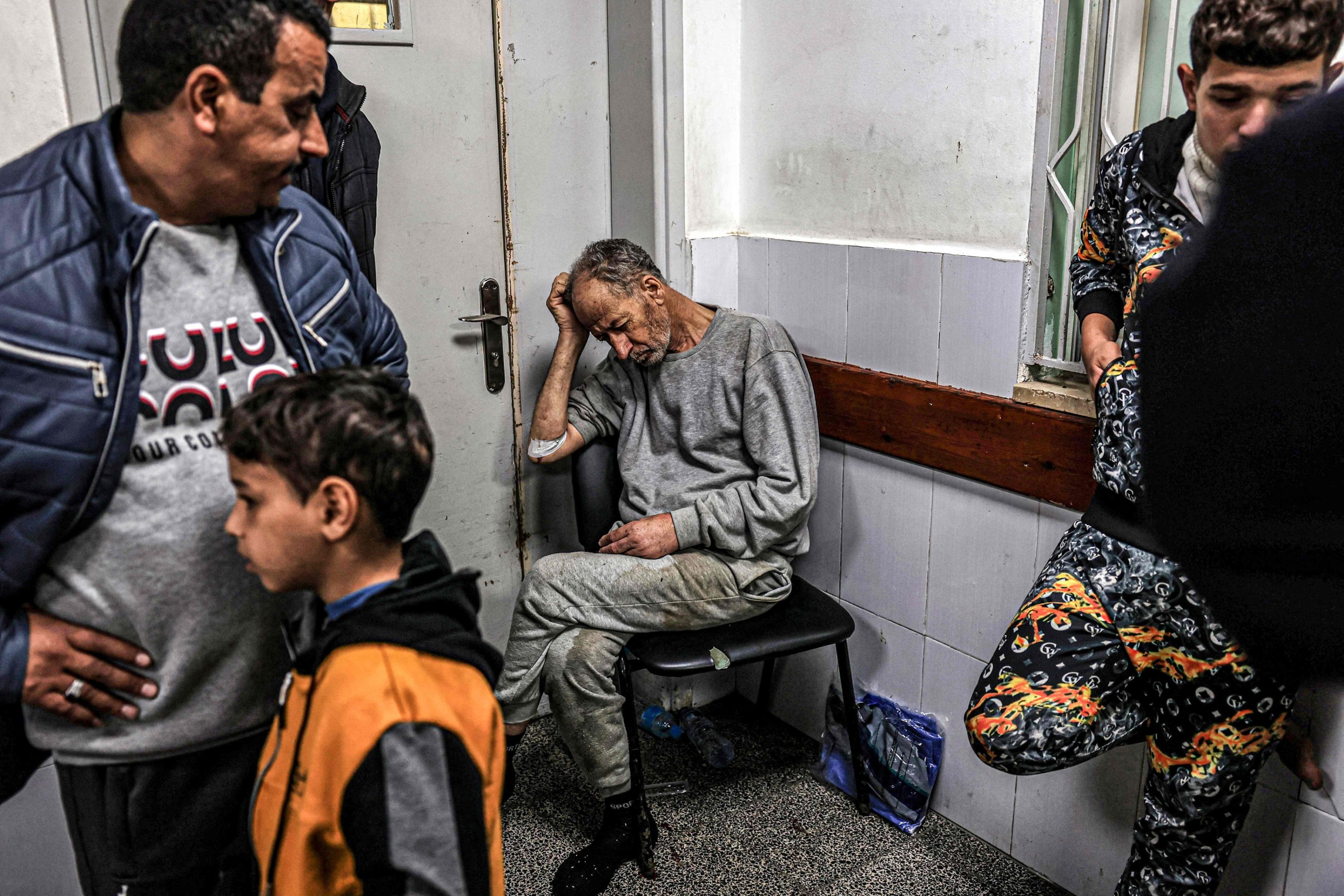© Turkuvaz Haberleşme ve Yayıncılık 2026
At a funeral in Gaza on Monday a line of Palestinians touched white shrouds containing the bodies of at least 70 people who Palestinian health officials said were killed by an Israeli airstrike targeting Maghazi in the center of the besieged strip.
It followed one of the enclave's deadliest nights in the 11-week-old battle between Israel and Hamas. One man hugged a dead child and others were hysterical.
"The walls and the curtains fell on us," said one man. "I reached down to my four-year-old child but all I found were rocks."
Strikes that began hours before midnight persisted into Monday. Palestinian media said Israel stepped up air and ground shelling in central Gaza.
Health ministry spokesperson Ashraf Al-Qidra said many of those killed at Maghazi were women and children. Eight others were killed as Israeli planes and tanks carried out dozens of airstrikes on houses and roads in nearby al-Bureij and al-Nusseirat, health officials said.
Medics said an Israeli airstrike in Khan Younis in southern Gaza killed 23, bringing total Palestinian fatalities overnight to more than 100.
Pope Francis said in his Christmas message on Monday that children dying in wars, including in Gaza, are the "little Jesuses of today" and that Israeli strikes were reaping an "appalling harvest" of innocent civilians.
Some of Gaza's small Christian community took a break from the conflict and suffering to celebrate Christmas.
Several residents made pleas on social media for people to afford them shelter as they have become homeless after leaving their homes in Bureij.
"I have 60 people in the house, people who arrived at my house believing that central Gaza area was safe. Now we are searching for a place to get to," said Odeh, a resident of the refugee camps.
The Israeli army said it was reviewing the report of a Maghazi incident and was committed to minimising harm to civilians. Hamas denies the Israeli charge that it operates in densely populated areas or uses civilians as human shields.
The Palestinian Red Crescent published footage of wounded residents being transported to hospitals. It said Israeli warplanes were bombing main roads, hindering the passage of ambulances and emergency vehicles.

Hamas and another smaller Palestinian resistance group, Islamic Jihad, are believed to be holding more than 100 hostages from among 240 they captured during their Oct. 7 incursion of Israeli towns that killed 1,140 people.
Since then, Israel has besieged the narrow Gaza Strip and laid much of it to waste, with more than 20,400 people confirmed killed, according to Gazan authorities, and thousands more believed dead under the rubble.
The vast majority of the 2.3 million Gazans have been driven from their homes, and the United Nations says conditions are catastrophic.
Since a weeklong truce collapsed at the start of the month, fighting has only intensified on the ground, with war spreading from the north of the Gaza Strip to the full length of the densely populated enclave.
The Israeli military said Sunday that two of its soldiers had died in the past day, bringing to 158 the number killed since ground operations began on Oct. 20.
"This is a difficult morning, after a very difficult day of fighting in Gaza," Prime Minister Benjamin Netanyahu told his cabinet on Sunday. "The war is exacting a very heavy cost from us. However, we have no choice (but) to continue to fight."
He said in a video message that troops would fight deeper into Gaza until "total victory" over Hamas.
Israel has been under pressure from its closest ally the United States to shift operations to a lower-intensity phase and reduce civilian deaths.
On Saturday, Israel's military chief of staff said his forces had largely achieved operational control in the north of Gaza and would expand operations further in the south.
But residents say fighting has only intensified in northern districts.
Diplomatic efforts, mediated by Egypt and Qatar, on a new truce to free the remaining hostages held by militants in Gaza have yielded little public progress, although Washington described the talks last week as "very serious."
Islamic Jihad said a delegation led by its exiled leader Ziad al-Nakhlala was in Cairo on Sunday. His arrival followed talks attended by Hamas chief Ismail Haniyeh in recent days.
The resistance groups have said they would not discuss any release of hostages unless Israel ends its war in Gaza, while the Israelis say they are willing to discuss only a pause in fighting.
